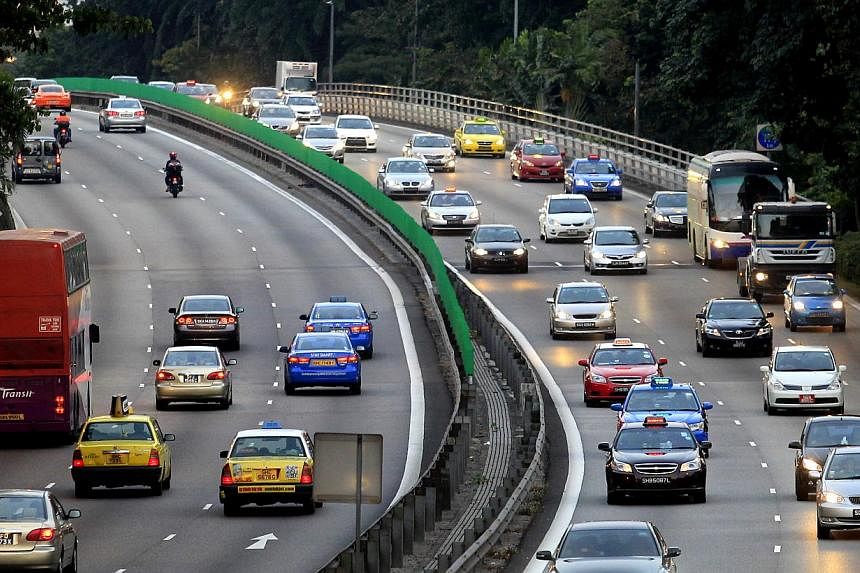Incidents of road rage are on the decline in Singapore, according to the latest police statistics obtained by The Straits Times.
The number of reported road rage cases in the first nine months of this year fell to 53, from 71 over the same period last year.
Such cases, which are classified as "voluntarily causing hurt", totalled 90 for the whole of last year, compared with 97 in 2012 and 84 in 2011.
Criminal lawyer Rajan Supramaniam believed the dip in cases was a result of stiff sentences passed and the growing number of in-car cameras, which have served as an effective deterrent.
"With advanced technology and more witnesses stepping forward, offenders can't go scot-free," he said.
Lawyers whom The Straits Times spoke to said they are handling more road rage cases involving foreigners, though the police do not have a breakdown of cases involving foreigners.
Earlier this month, three foreigners went to court after they were accused of physically abusing cabbies here.
"Road bullying" cases involving foreigners have also drawn attention in the media, especially on social media.
Road bullying can take many forms, from verbal exchanges between drivers to cases where one driver assaults another over a traffic dispute, said the police.
In one case involving a foreigner, a Caucasian man drew flak from netizens after he was caught on camera pointing the middle finger at a motorist earlier this year.
"That is also a form of road rage," criminal lawyer Josephus Tan said of the case.
"We need to let them know that certain actions that may be acceptable, or seen as a mischievous prank in their own country, are frowned upon here."
But putting things into perspective, criminal lawyer Shashi Nathan said most road rage cases he handled still involved Singaporeans.
"Nowadays, with social media, when you get a foreigner involved in a road rage incident, people would post it online, and it would generate more publicity," he said.
Singaporean motorists behaving badly have also been shamed on social media.
Student Quek Zhen Hao, 25, made the news in February this year after videos of him swerving his car recklessly into the path of another driver without signalling went viral. He had also approached the woman driver of the other car in a threatening manner.
In May, Quek was fined $5,400 and banned from driving for two years after pleading guilty to two charges of driving rashly to endanger life and one of displaying threatening behaviour.
Mr Rajan said not all foreigners involved in road rage cases were white-collar professionals. "Some (road rage) cases I have handled involved foreigners working as drivers here. When people overtake them, they overreact," he said.
He added that stiff sentences for most road rage cases would send a strong deterrent message, noting that a foreign client was jailed for two months for attacking a cabby a few years ago.


